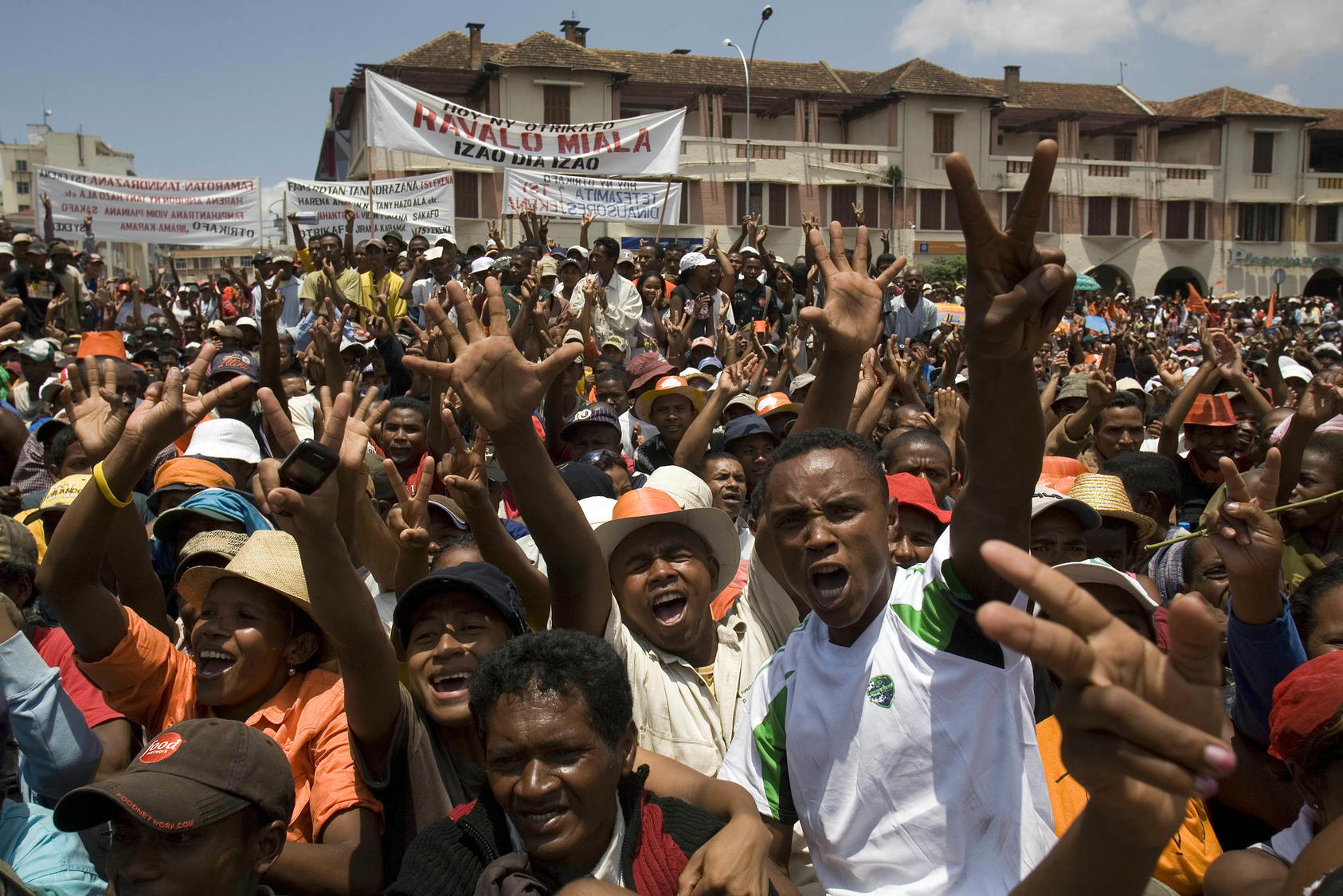
Madagascar’s united opposition said they will not recognise results from the presidential poll first round, set to be unveiled on Saturday.
“We shall not recognise the results of this illegitimate election, replete with irregularities, and we decline all responsibility for the political and social instability which may result,” the 11 candidate-strong platform said in a statement on Friday.
Ten of the opposition candidates had called at the outset for an election boycott ahead of the November 16 opening round.
Siteny Randrianasoloniaiko, who alone did campaign before s igning up to the statement, slammed what he termed “alarming anomalies” in the process which he said “give rise to urgent legitimate questions on the results’ validity”.
The Independent National Election Commission was due to announce results at its headquarters in the capital Antananarivo on Saturday morning.
On Friday, its website showed 91 percent of votes cast had been tallied leaving incumbent Andry Rajoelina on 59.52 percent, enough to obviate the need for a second round.
Elected in 2018, Rajoelina first had a spell in office in 2009 after a rebellion chased out then president Marc Ravalomanana.
This year’s first-round vote saw 60 percent of an 11-million-strong electorate fail to cast their ballot.
The opposition collective called on voters “to consider the elections do not exist” and refused to campaign.
Virtually daily for weeks prior to the election, the collective urged demonstrations in Antananarivo. The protests, which drew few people, were regularly dispersed with tear gas.
The collective denounced irregularities during the election including closed polling stations, lack of ballot boxes, as well as the use by the outg oing president of state resources to help fund his campaign.
